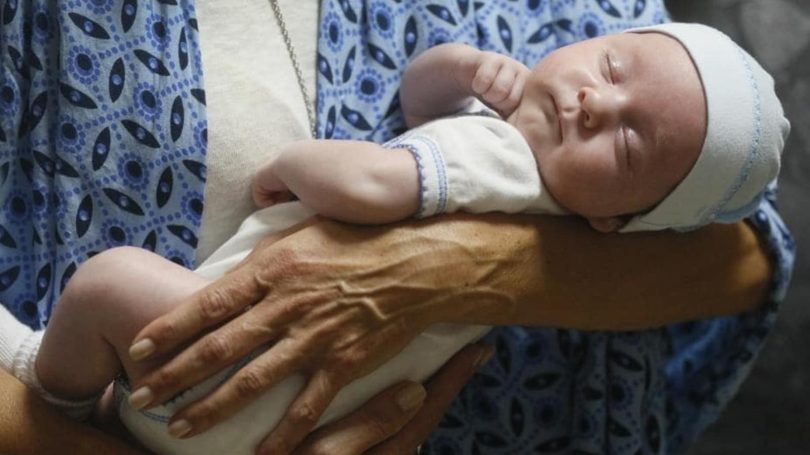[ad_1]
A 29-year-old woman was admitted to hospital with dengue fever and had to go through emergency C-section after she sustained membrane rupture. When the child’s test also came positive, the baby was taken to NICU for monitoring. The baby had to resuscitated and was put on IV therapy and made a recovery. A mother in rare cases can pass on dengue infection to her foetus through placenta during the peripartum period, shortly before delivery or after giving birth. (Also read: Signs and symptoms of seizures in newborns and young kids; here’s how to treat)

What is perinatal dengue?
“Perinatal dengue refers to the transmission of dengue virus from a mother to her baby during pregnancy, delivery, or shortly after birth. The virus can be vertically transmitted from the mother to the baby. In 2010, we had reported two cases of perinatal dengue for the first time in India, which were subsequently published in the international journal – Journal of Neonatal-Perinatal Medicine,” says Dr Sachin Shah- Director Neonatology & Paediatric Intensive Care Services, Surya Mother & Child Super Speciality Hospital, Pune.
How it happens
“Dengue can spread to newborns from mothers around delivery time. This is a very rare occurrence, but it is possible for the virus to pass from the mother to the baby through the placenta or during delivery. If a mother is infected with dengue during pregnancy, the virus can cross the placenta and infect the baby. This can happen at any stage of pregnancy, but it is more likely to occur in the third trimester. The baby may not show any signs or symptoms of infection at birth, but they may develop them later, usually within the first two weeks of life. The virus can also be transmitted to the baby during delivery if the mother is actively infected with the virus. This is a more serious form of transmission, as the baby is more likely to develop severe symptoms, such as bleeding, shock, and organ failure,” says Dr Aruna Kalra, Director, Gynaecology and Obstetrics, CK Birla Hospital, Gurugram.
“The manifestations, as observed in babies are very similar to those of bacterial sepsis (multiorgan dysfunction, thrombocytopenia, and coagulopathy) typically occurring in the second week of life. The treatment essentially involves providing supportive care – administering fluids and SoS blood products. Fortunately, majority of the neonates experiencing perinatal dengue symptoms tend to show signs of recovery within a relatively short timeframe, that of 5-7 days. In some cases, newborns may exhibit isolated low platelet count as the only symptom of perinatal dengue,” says Dr Shah.
Recovery tips
“If the mother has contracted dengue fever during childbirth, it is essential to continuously monitor the health of the newborn, even after discharge from the hospital. This post-discharge monitoring period should extend for a minimum of 2 weeks to detect and address any potential complications related to perinatal dengue that may manifest after birth,” says Dr Shah.
Recovery tips for the new mother and the newborn
Dr. Anurag Saxena, HOD-Internal Medicine, Primus Super Speciality Hospital shares a list of tips for quick recovery of mother and the newborn.
• Hydration: Adequate hydration is crucial for both the mother and the newborn. Drinking plenty of fluids helps in the recovery process.
• Rest: Both the mother and the newborn should get sufficient rest to aid in the recovery process and boost the immune system.
• Follow medical advice: It’s essential for the mother to follow her healthcare provider’s recommendations for dengue treatment and management. This may include pain relief, fever-reducing medications, and close monitoring of symptoms.
• Breastfeeding: If the mother is able to breastfeed, she should continue to do so, as breast milk provides essential nutrients and can help boost the newborn’s immune system.
“It’s important to note that the risk of vertical transmission of dengue from mother to newborn is relatively low compared to other modes of transmission. Pregnant women who live in or travel to dengue-endemic areas should take precautions to prevent mosquito bites throughout their pregnancy to minimize the risk of dengue infection. Additionally, any pregnant woman who suspects she may have dengue should seek medical attention promptly for proper evaluation and care,” says Dr Saxena.
Dr Kalra says there is no specific treatment for dengue in newborns, but supportive care can be provided to help manage the symptoms.
“This may include fluids, electrolytes, and blood transfusions. In some cases, antiviral medications may be used. If you are pregnant and are concerned about dengue, talk to your doctor. They can help you assess your risk and take steps to protect yourself and your baby,” says the expert.
Here are some tips to help prevent dengue transmission during pregnancy by Dr Kalra:
• Avoid mosquito bites by using insect repellent, wearing long sleeves and pants, and staying in well-screened areas.
• If you travel to areas where dengue is common, be extra careful to avoid mosquito bites.
• If you think you may have been exposed to dengue, talk to your doctor right away.
Here are some additional tips that may be helpful for new mothers with dengue as per Dr Kalra:
• Ask for help from your partner, family, and friends. They can help you with childcare, household chores, and other tasks so that you can rest.
• If you are breastfeeding, be sure to wash your hands thoroughly before and after each feeding.
• Avoid close contact with people who are sick.
• Protect your baby from mosquito bites by using insect repellent, dressing them in long sleeves and pants, and keeping them in well-screened areas.
“Recovery from dengue can take several weeks. It is important to be patient and to listen to your body. If you have any concerns about your recovery or your baby’s health, be sure to talk to your doctor,” says Dr Kalra.
[ad_2]
Source link








